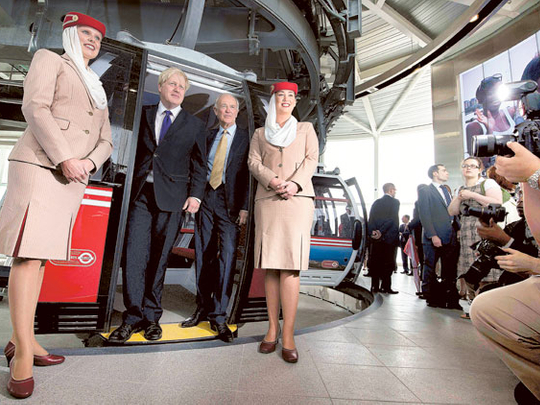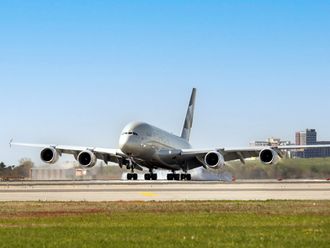
MUMBAI: Emirates airline may consider investing in an Indian carrier - even a loss-making one - but only if it gets management control, a senior executive said, showing some positive sentiment for the troubled sector and an economy that's losing favour with foreign investors.
The comments from the Dubai-based carrier come at a time when global economic uncertainty as well as growth concerns in India are making foreign investors cautious. In the aviation sector, investors are worried also because of a multitude of regulations and high taxes on jet fuel.
India allows up to 49 per cent foreign direct investment in airlines, including by companies and individuals, but overseas carriers are barred. The government is considering allowing investment by foreign airlines, but it isn't clear when the proposal would be passed.
"For Emirates, as for any other airline, I think it's important, we are involved in the decision-making in terms of which route we are supposed to go, adding or closing stations [destinations], adding or reducing manpower," Majid Al Mualla, senior vice-president, commercial operations, for West Asia and the Indian Ocean, told Dow Jones Newswires late on Wednesday.
India's aviation industry, once hailed as one of the fastest growing in the world, is now bleeding, with only one out of six airlines making profits. A weak rupee has further hurt Indian airlines by increasing the cost of jet fuel, salaries for foreign pilots, overseas airport charges, and lease rentals for planes.
Al Mualla said that while profitability of a carrier is a parameter for investing, it can be overlooked if the Indian airline holds enough promise that it can be turned around.
He said foreign carriers won't invest in Indian airlines unless investors' role is clearly specified. "Right now, it's very difficult for any airline to decide on any such investment."
Al Mualla said some carriers in India are looking for investments from overseas carriers but Emirates isn't interested in them, nor have they approached the airline. He declined to identify the Indian companies.
India's Kingfisher Airlines Ltd. and low-fare airline SpiceJet Ltd. have said earlier they would welcome a foreign stake-buy, given the right valuation.
Emirates, one of the biggest foreign carriers to India, is also bullish about its Indian operations.
Al Mualla said Emirates' revenue from the West Asia and Indian Ocean region, led by India, grew more than 20% in the year ended March 31, and is expected to grow at a similar pace in the current year.
He said that robust demand in the region have made it the airline's most profitable at a time when its overall net profit has declined due to high fuel costs and the global slowdown.
Net profit at the airline fell 73% to $409 million last year while revenue grew 15% to $17 billion, he said. The West Asia and Indian Ocean region contributed about 11% of total revenue and the biggest chunk of profit, Al Mualla said, without elaborating.
Emirates flies more than 330 weekly flights to this region-consisting also of Bangladesh, Pakistan, Sri Lanka, Nepal, Seychelles, Mauritius, Afghanistan and Kazakhstan-of which 185 are to India.












